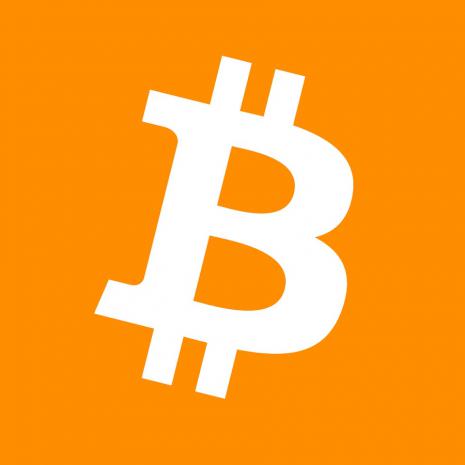
Breaking News
 2008 Crash Prophet Issues URGENT Bubble Warning for 2025 - Maloney
2008 Crash Prophet Issues URGENT Bubble Warning for 2025 - Maloney
 3D Printed Aluminum Alloy Sets Strength Record on Path to Lighter Aircraft Systems
3D Printed Aluminum Alloy Sets Strength Record on Path to Lighter Aircraft Systems
 Bitcoin Surges to $114,777 as Crypto Economy Adds $170 Billion in a Single Day
Bitcoin Surges to $114,777 as Crypto Economy Adds $170 Billion in a Single Day
 'Darker The Better': Daily Cocoa Slows 'Inflammaging' By 70%
'Darker The Better': Daily Cocoa Slows 'Inflammaging' By 70%
Top Tech News
SEMI-NEWS/SEMI-SATIRE: October 12, 2025 Edition
 Stem Cell Breakthrough for People with Parkinson's
Stem Cell Breakthrough for People with Parkinson's
 Linux Will Work For You. Time to Dump Windows 10. And Don't Bother with Windows 11
Linux Will Work For You. Time to Dump Windows 10. And Don't Bother with Windows 11
 XAI Using $18 Billion to Get 300,000 More Nvidia B200 Chips
XAI Using $18 Billion to Get 300,000 More Nvidia B200 Chips
 Immortal Monkeys? Not Quite, But Scientists Just Reversed Aging With 'Super' Stem Cells
Immortal Monkeys? Not Quite, But Scientists Just Reversed Aging With 'Super' Stem Cells
 ICE To Buy Tool That Tracks Locations Of Hundreds Of Millions Of Phones Every Day
ICE To Buy Tool That Tracks Locations Of Hundreds Of Millions Of Phones Every Day
 Yixiang 16kWh Battery For $1,920!? New Design!
Yixiang 16kWh Battery For $1,920!? New Design!
 Find a COMPATIBLE Linux Computer for $200+: Roadmap to Linux. Part 1
Find a COMPATIBLE Linux Computer for $200+: Roadmap to Linux. Part 1
 Bionic hand with NO brain implants?!
Bionic hand with NO brain implants?!
 Nano-cubosome eyedrops target macular degeneration without needles
Nano-cubosome eyedrops target macular degeneration without needles
Is Bitcoin A Store of Value?

ANSWER: Bitcoin is no more a store of wealth than copper or anything else. I have said from the outset that it is a trading vehicle. It will rise and fall like everything else. A store of wealth is one where, if you put $1,000 into it, you can get $1,000 back. Everything rises and falls with the value of your house, as well as salaries and wages.
All the hype that Bitcoin is the saviour of the world, will replace the dollar, and circumvent central banks, was all great sales propaganda. The government in criminal cases has confiscated crypto accounts. The U.S. Dept. of Justice (DOJ) filed a civil forfeiture complaint in the District of Columbia relating to over $225.3 million in cryptocurrency tied to fraud schemes and money laundering. There was over $2.8 million in crypto + other assets seized from a wallet in connection with ransomware operations (Zepplin ransomware) by the DOJ. There are cases and a growing legal practice around cryptocurrency accounts being seized, or at least compelled to be disclosed, in divorce proceedings. It's complex, but courts are increasingly treating crypto like other financial assets when dividing property. Here's a breakdown of how this works, the challenges, and what seizure/turnover looks like in practice.
Under U.S. law, if you carry more than $10,000 in "currency or other monetary instruments" into or out of the country, you must report it to U.S. Customs & Border Protection (CBP). The relevant form is the FinCEN Form 105 (Currency and Monetary Instruments Report). "Monetary instruments" are defined broadly to include items such as paper money, coins, traveler's checks, bearer instruments, etc. Granted, U.S. law does not clearly define cryptocurrencies (Bitcoin, etc.) as "currency or monetary instruments" in the same way. Some commentators argue that the $10,000 border?reporting rule does not currently cover crypto because of this definitional ambiguity. However, U.S. regulators have proposed including crypto in border declarations, but as of now, no final rule has been enacted.
I had flown to Bermuda to buy some ancient coins in an auction. I paid by check, threw them in my briefcase, and you had to go through customs there in Bermuda. The agent opened my briefcase and saw the purchases I had made that had the prices on them, and said I didn't declare them so that he could confiscate them. I argued that they were not listed in the guidelines, and under his definition, my clothes could be confiscated as well. He backed off, but every time for the next 30 years, when I returned to the United States, they looked at the screen, and the smile and friendly demeanor vanished. Then came the words, "Let me see the briefcase."



